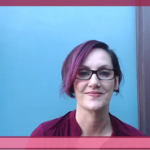Researchers who study emotion regulation—how we cope, or fail to cope, with the daily swirl of feelings—are discovering that many anxious people are bound and determined (though not always consciously) to cultivate anxiety. The reason, studies suggest, is that for some people anxiety boosts cognitive performance, while for others it actually feels comforting.
Consider the search engine facts:
- People in the US google search “anxiety” 2,430,000+ monthly
- “Anxiety symptoms” = 300,000+
- “Anxiety disorder” = 265,000+
Consider the statistics (via National Institute of Mental Health)
- Anxiety disorders are the most common mental illness in the U.S., affecting 40 million adults in the United States age 18 and older, or 18% of the population.
- Anxiety disorders are highly treatable, yet only about one-third of those suffering receive treatment.
- Anxiety disorders cost the U.S. more than $42 billion a year, almost one-third of the country’s $148 billion total mental health bill.
- More than $22.84 billion of those costs are associated with the repeated use of health care services; people with anxiety disorders seek relief for symptoms that mimic physical illnesses.
- People with an anxiety disorder are three to five times more likely to go to the doctor and six times more likely to be hospitalized for psychiatric disorders than those who do not suffer from anxiety disorders.
One has to wonder if we need access to all this anxiety information? Are we so pressed for time that we don’t always make the most informed decisions regarding our mental health?
Regardless of google, smart people with white lab coats and clip boards, and 24-7 access to technology, anxiety remains one of the most common reasons for visiting a therapist.
I know that you’re thinking…‘When we seek out therapy for symptoms of anxiety, panic attacks, and social phobia, we don’t want to feel anxious right? You’re not trying to convince me this is all in our heads, are you?’
Not exactly. But stick with me, my smart and healthily skeptical friend…
We all feel anxious from time to time. But if you worry so much that you don’t enjoy life, your anxiety hinders your daily functioning. No one knows for sure why certain people are more prone to experiencing anxiety symptoms, and panic attacks. Common characteristics include life events, a genetic predisposition to a more active central nervous system, and growing up in a household where your caretakers did not teach you (or model) that the world is basically a safe place. And you can thank your folks Fly-of-the-handle Fran and Always-Addled-Alan for that.
‘So you’re saying I’m doomed, right? You therapists are always slapping labels on us. Must be to propagate the Counseling Cash Cow…’
No comment right now, Projective Pat. However, in some cases, the need to experience anxiety can lead to a state that looks very much like addiction to anxiety.
“There are people who have extreme agitation, but they can’t understand why. They therefore latch on to any cause to explain what they’re feeling. That rationalization doubles back and exacerbates the anxiety. Some people get addicted to feeling anxious because that’s the state that they’ve always known. If they feel a sense of calm, they get bored; they feel empty inside. They want to feel anxious.”–Psychiatrist Harris Strayner, Mount Sinai School of Medicine
Composite case in point:
“Anxious Ana” comes to therapy due to extreme stress in her relationship with “Depressed Dan.” Although high functioning, well-educated, and professionally competent, Anxious Ana has problems focusing on the 9-5, questions her identity, and her future with Depressed Dan.
Anxious Ana: I’ve always been this way. I guess I’m just one of those people who are meant to live in a state of flux. Also, I just function better when stressed, and under the gun.
Psychotherapist: Can you explain ‘state of flux’ and ‘under the gun?’
Anxious Ana: I’m always stressed out, worried when the other shoe will drop. I think in some way, I don’t deserve to be happy. Sometimes my anxiety works for me, though. I may be up until 4:00 a.m. for that 8:30 a.m. deadline, but I always get the job done.
Psychotherapist: Wow. That sounds like a lot of energy devoted to worry and ritual. What does your stress and unhappiness communicate in behavioral terms? For example, when you feel anxious and depressed, are you able to get out of the bed in the morning? How’s your relationship with your co-workers?
Anxious Ana: Oh, yeah. I always get out of bed. It doesn’t mean I’m happy about it, but I worry about not being able to pay the bills, and disappointing my clients. My colleagues don’t seem to get too annoyed, except when I freak out that things aren’t perfect. Also, I’m supporting Depressed Dan. He has a ton of issues, and sometimes I don’t know which version will walk through the door on any given evening.
Psychotherapist: Hmmm. Let’s put Depressed Dan on-hold for a while. Now, let’s say you wake up tomorrow morning without the physical and psychological anxiety symptoms like heart palpitations, trembling, shortness of breath, abdominal pain, and fear of losing control, or going crazy. What would you feel then?
Anxious Ana: OMG. Whoa. Bored. Maybe calm, I don’t know. But probably more empty.
Psychotherapist: I see. Can we talk about avoidance? We’re human, we want to experience pleasure and avoid pain. However, if we don’t look at the…
Anxious Ana: It’s not like I’m happy living like this, you know. Like you always say, “You’re the expert on your life,” and believe me, I’ve tried everything. And not to disrespect your profession, but I find those breathing exercises, meditations, and visualization scripts kinda cheesy.
Psychotherapist: I understand your depression and anxiety are real. These feelings are painful and disruptive to your job, your relationship, and your emotional well-being. You deserve treatment for your anxiety and depression, for sure. I heard when you said you’ve tried everything you know to try and change. What if you considered things I know about changing the course of depression and anxiety? Would you be willing to try some new coping skills? Can we add flexibility to the mix?
Say, for example, you switched your negative thinking and limiting beliefs with, “I don’t have to live with anxiety and fear. I could choose to see my situation in a more positive, healthy and realistic light.” Or, “I don’t have to settle for this relationship with Depressed Dan. Perhaps, there’s a relationship out there more healthy and complimentary to my self-worth?” Are there choices in here?
Anxious Ana: Again, Doc, it’s not like I said I was happy with this anxiety thing.
Psychotherapist: I didn’t say you were happy with your anxiety.
***
If you’d like to add more flexibility to your thinking, click this awesome article. And don’t forget to share this resource with someone who could benefit from a different way of seeing their situation.
Yours in there’s always hope,
~Linda Esposito, LCSW
Subscribe // Team Happy // The Happiness Course // Wellness Boot Camp








